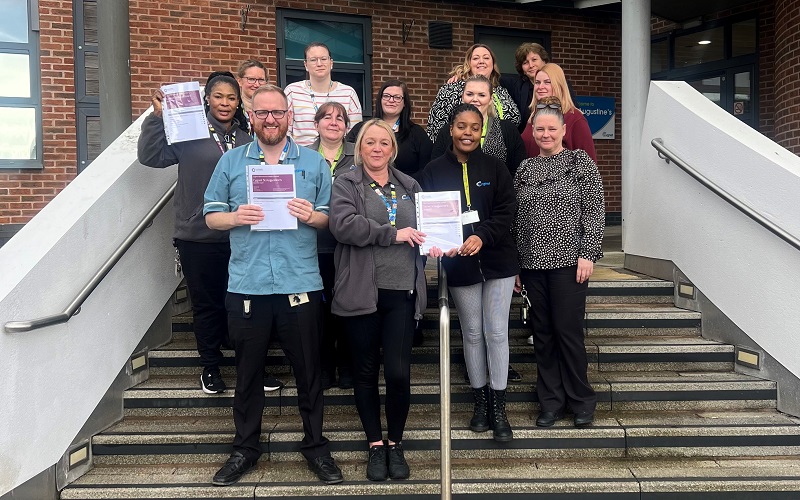
The regulator’s report on Cygnet St Augustine’s, run by Cygnet health Care, praised the high standard of care offered at the service and highlighted many areas of positive practice, saying the service “met the needs of all patients”.
The service, on Cobridge Road, Stoke-on-Trent, is part of the Cygnet Health Care division, and offers a 32 bed specialist high support inpatient rehabilitation service for men.
The inspection, which took place in December 2023, looked at all five key lines of enquiry; Safe, Well Led, Caring, Responsive and Effective. The service has a good rating across all five enquiry lines. As part of the inspection, the CQC spoke with service users and their relatives. Service users told the CQC that staff are “approachable, caring and respectful.” One service user told inspectors “It’s like having friends that help you.”
Tracy Laidler, Hospital Manager, said she was delighted with the outcome of the inspection.
She added: “Every single member of staff at the service has played a big part in ensuring we received such a good, glowing inspection report.
“The ethos and culture here at Cygnet St Augustine’s is about always putting the service user first and ensuring we provide the highest quality care possible, a care full of compassion and kindness. I am so proud that this culture, and the dedication and professionalism of my staff team, has been recognised by inspectors.
“Here we offer service users the opportunities and support they need to stabilise and manage their condition and re-enter community living with a renewed sense of enthusiasm and optimism. We offer more than just specialists and treatments, we value the service users as individuals, help enhance their interests and abilities, encourage them to share their views and help them unlock their talents and aspirations.”
Inspectors said the service provided safe care and that the ward environment was safe and clean. The wards had enough nurses and doctors, staff assessed and managed risk well, and followed good practice with respect to safeguarding.
The report praised staff for producing person-centred, holistic, recovery-oriented care plans and also highlighted the effective teamwork at the service.
It read: “Patients were involved in planning activities relevant to their goals. These included activities that focused on daily living skills, healthy lifestyles, and social skills.
“Staff from different disciplines worked together as a team to benefit patients. They supported each other to make sure patients had no gaps in their care. They had effective working relationships with staff from services providing care following a patient’s discharge
.
“Staff told us that they were a happy team who worked well together.”
Highlighting the caring nature of the service, inspectors noted how staff treated patients with compassion, kindness and dignity.
They said: “Staff understood the individual needs of patients and supported patients to understand and manage their care, treatment or condition. All staff we spoke to were passionate, motivated and committed to delivering person centred care.”
Describing how the service empowered patients to develop their independence skills, inspectors stated: “Staff encouraged patients to develop and maintain independence. Patients’ activity plans were focused on self-care and developing independent living skills. Patients were encouraged to make their own drinks and meals, clean their bedrooms and do their own laundry.
“Some patients participated in therapeutic earning jobs which allowed them to receive an earning for completing tasks. One patient told us that they had also been supported to access employment in the local community.
“Staff gave us examples of how they supported patients to access education, volunteering and work opportunities within the local community.”
The report also highlighted that residents were supported to take their medicines safely and in line with best practice and that staff supported people to access specialist health and social care in the community when required.
It said staff helped patients with communication, advocacy and cultural and spiritual support and that the service was well led, and the governance processes ensured that ward procedures ran smoothly.
To read the full report, go to: https://www.cqc.org.uk/location/1-133291904